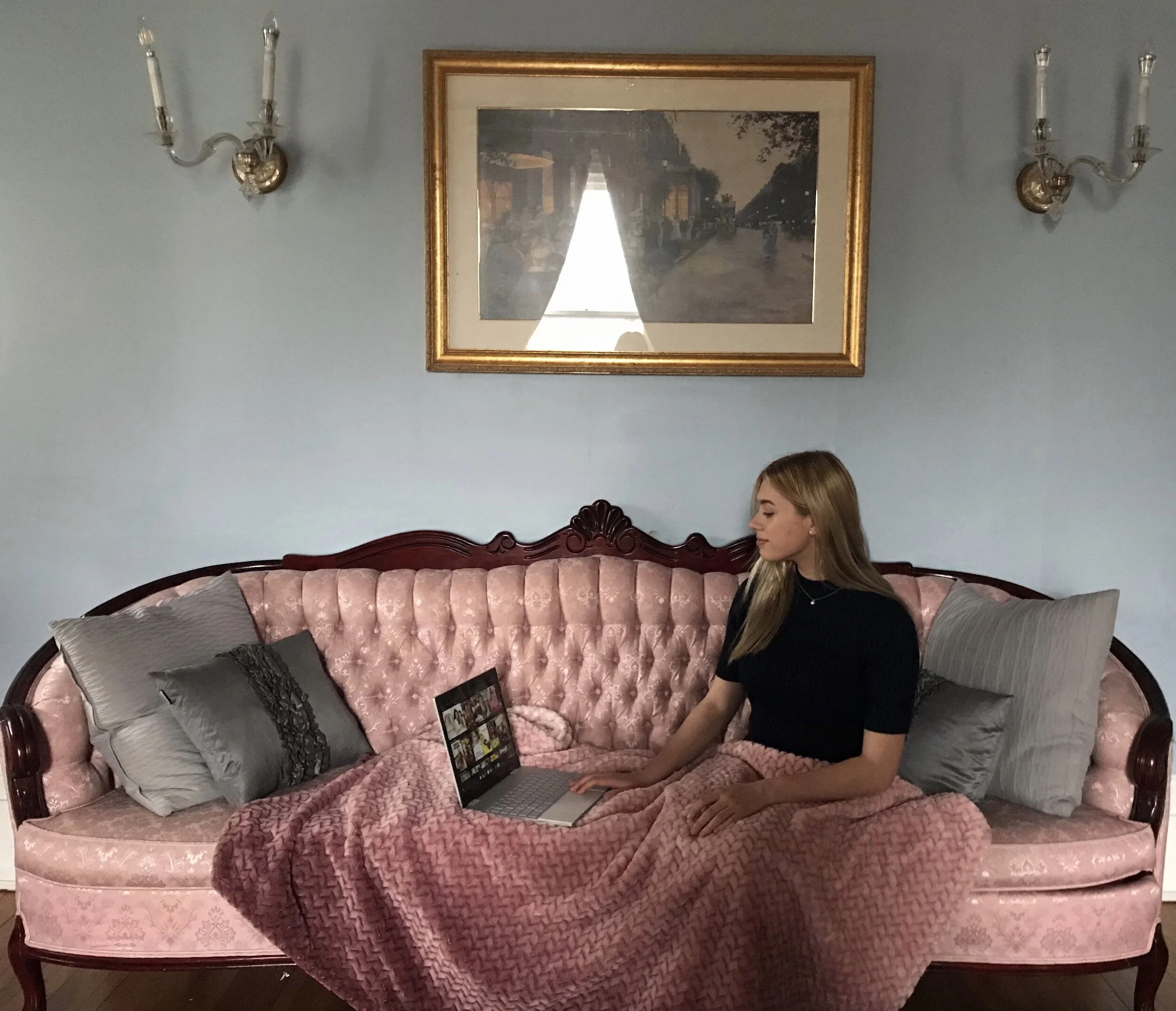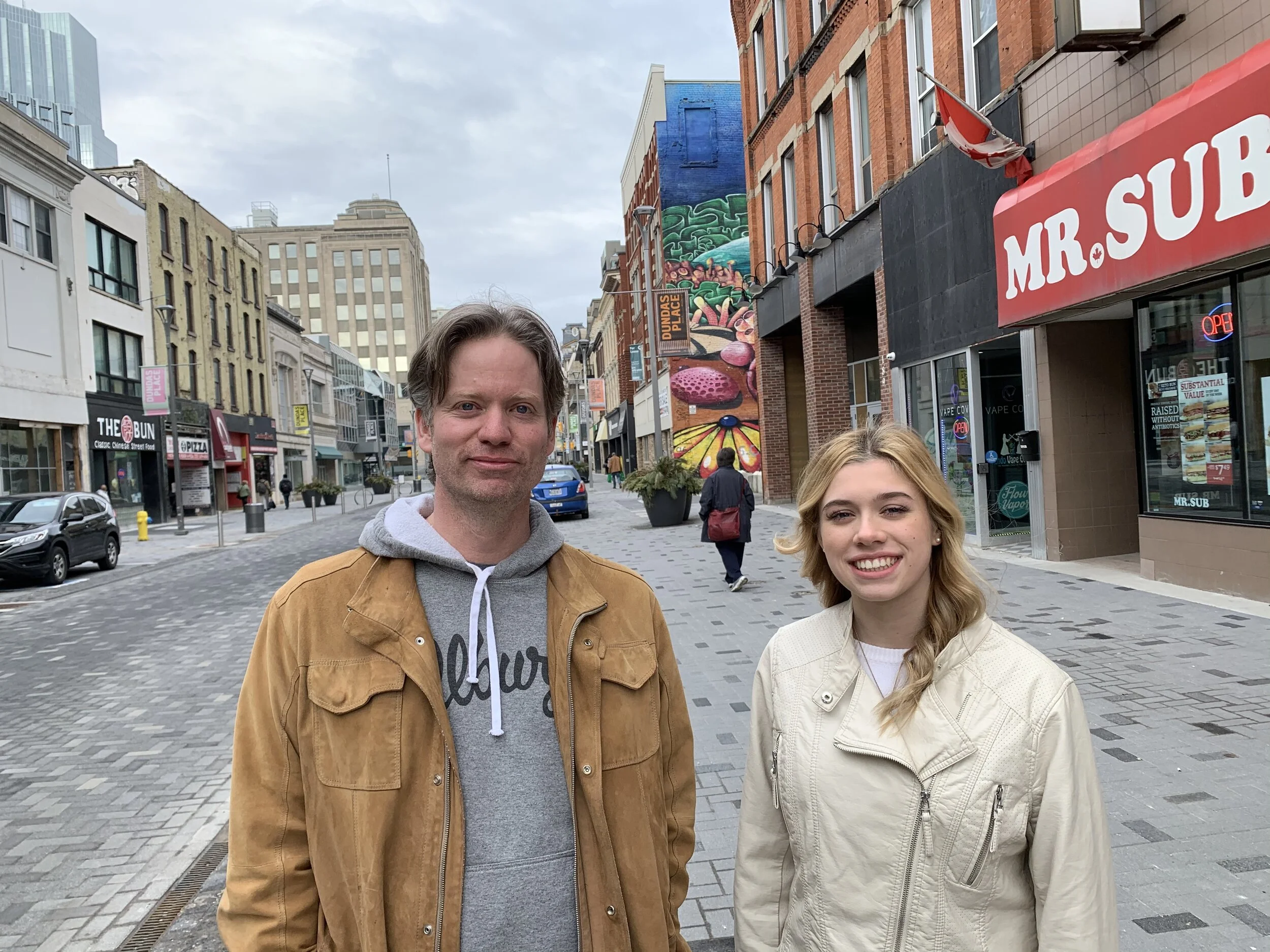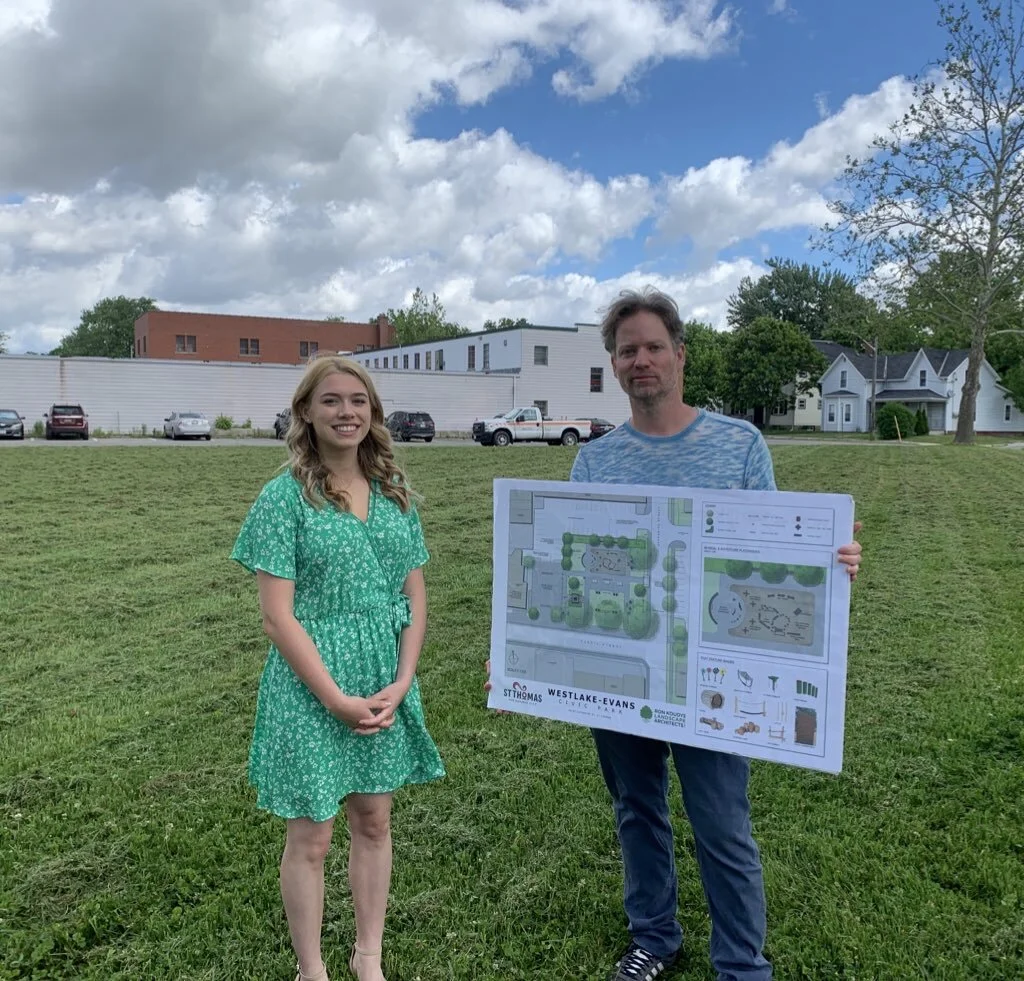Thinking About Films During the Pandemic
Maddie King is one of our teenage staff members at young & free press. She is currently a grade twelve student at Parkside Collegiate Institute in St. Thomas, and has an interest in film.
Last September I had the chance to attend the Toronto International Film Festival. Yes, this was my first film festival! I had no idea what to expect.
When we arrived at the Ryerson Theatre to see the film Uncut Gems, I was surprised to find that the theatre was massive and absolutely packed to capacity (the venue seats over 1200 guests). We had tickets, but we bounced around a bit before settling into our seats.
If you have not seen Uncut Gems, the current pandemic may give you the time. This is a fast-paced, intense movie. What distinguishes the film is that the speed is incessant – the yelling, fighting, and deal-making never stop. Without question, this causes anxiety for viewers! Still, I loved Adam Sandler’s performance – he was so different than usual, and this must be considered his best performance. He plays a jeweler named Howard Ratner, who is a compulsive gambler and risk-taker. Overall, the story has important themes like addiction, toxic relationships, and the value of different kinds of labour. There is an underlying current of questioning our desire for money and the ‘status’ that comes from knowing celebrities (former NBA basketball star Kevin Garnett has a crucial role in the film, and sets the whole narrative in motion). I would say that, more than anything, Uncut Gems is memorable — viewers will never forget this film.
The next venue that we visited was the TIFF Bell Lightbox Theatre on King Street to see an indie film called Blow the Man Down. Following the movie, the directors, Bridget Savage Cole and Danielle Krudy, came onstage and interacted with the audience. This was another new experience for me that I found very cool. Most of the time, we just absorb films passively; at film festivals, we have the chance to feel more engaged.
Blow the Man Down revolves around the story of two sisters living in a small town in Maine. One gets into a scary situation with a man that she did not know before, and when she seeks out her sister for help, they slip into a sequence of events through which they come to learn what is really happening in the community. In the film, the women are portrayed as really running things, whereas the men are either clueless or disinterested. There are some strong feminist tones in the script and in the performances. The pacing of the film is nothing like Uncut Gems – in this case, there were moments to exhale – but the story-telling still provokes a bit of anxiety for the audience, just in a different way. Overall, this is an interesting, well-crafted film, especially considering that this was the feature film debut for the directors.
Maddie King of young & free press at the Toronto International Film Festival in September 2019.
In the evening, we saw Western Stars at the Scotiabank Theatre, which is a huge place! Part of the Cineplex chain, this provides more of a typical big-box movie-going experience. In contrast, the theatre at Ryerson University felt like a formal auditorium, and the Lightbox Theatre feels unique because of the location, open concept, and design touches associated with TIFF.
Probably I would not have chosen Western Stars, but I went because Andrew Gunn, who I work with at young & free press, is a long-time Bruce Springsteen fan. The film was a total change of pace from the first two – essentially a concert experience, Western Stars features Springsteen performing music from his recent album of the same name. The setting is a converted barn that the songwriter and his wife, Patti, have transformed into a performance venue.
Along with the music, Springsteen kind of meditates on current American life. The film moves slowly but is beautiful to look at and Springsteen adds his own distinctive perspective. One idea stood out especially: he mentioned that, in his early songwriting, he used cars as symbols of progress, for getting somewhere; now, in the twenty-first century, he questions whether we are really building toward anything. Cars gave power to the American dream, and still do, but he seems to be questioning the purpose behind all the noise. If you want some peace and quiet, watch Western Stars and take some time to think about the direction of North American culture. The shutdown brought on by the pandemic may be the perfect time to watch the film. Now 70 years old, Springsteen has seen a lot of changes, and his commentary is unique.
After TIFF, I had some time to reflect on the whole experience. Film festivals are special opportunities. The insights that directors, actors and others provide on-the-spot help move you to think a bit deeper about the films. Right now, the entire industry is dormant due to the COVID-19 pandemic. Actors and crew members can’t gather to film, and movie theatres are closed -- and when they re-open, will there be a shift to ‘physical distancing’ for a while, keeping moviegoers separated? Will drive-in theatres be viable again? Eventually this could even impact Netflix and other streaming services if there is a long content-drought. Filmmakers are innovative, though, and I wonder what will develop to keep the industry going.
Following my experience at TIFF, I had the chance in October to co-host the first-ever Forest City Youth Film Festival in London. This was a chance for teenagers in the London area to submit films, have them screened for an audience at the Wolf Performance Hall, and win awards, too. It was such a fun night! I felt honoured and excited to be part of a new event like this and have the opportunity to set such a fun, positive tone. From my spot on-stage, I could watch the students react to seeing the movies they either directed or acted in come to life on the big screen. The event brought everyone together to see the results of all their hard work. Some of the student films focused on significant real-world issues. What types of films will the pandemic inspire? As we cannot gather in large groups right now, will we have to consider the possibility of a virtual film festival? Hopefully not, but the COVID-19 situation will have long-lasting consequences.
Emily Stage, Alex Popen & Maddie King of young & free press at the first-ever Forest City Youth Film Festival in London in October 2019. Emily took photos & Maddie hosted the event.
My perspective on films changed after attending TIFF and hosting the Forest City Youth Film Festival. I learned how much work goes into generating an idea, filming and editing a movie, and eventually promoting a film, too. A lot of things have to come together. Also, I started to consider more seriously how films can affect an audience. If the story has a strong message, filmmakers can prompt a group of people to see the world from a different perspective and even change the way that individuals make decisions.
Starting before Christmas and through the first months of 2020, we watched some great films from around the world. We did this weekly and usually in small, independent theatres. Most people seem to avoid independently-run theatres, preferring the big box operations instead. The main difference between the two types is just the movies that are screened. Big box theatres usually play the blockbuster movies that everyone is anticipating because the producers and studios backing those films have substantial marketing budgets. Independent theatres show the indie efforts and foreign films that are not promoted as much, as well as films that may demand more of the viewer. The theatres operated by Cineplex and other chains are usually filled with people, whereas the privately-owned movie-houses seem to have a small, dedicated community of film-goers that attend most screenings. Both types of theatres can be enjoyable, but I've come to appreciate the smaller ones. Some spots that we visit regularly include the Hyland Cinema in London, Gallery Cinemas in Woodstock, and The Strand in Simcoe. There is a desire for both types of theatres, but the independent theatres create a cool environment, help to define an area, and build an identity for the neighbourhood. There are a lot of places that could benefit from theatres like this in the community. Of course, I am worried about the fate of theatres during and after the COVID-19 pandemic. Will all the businesses survive? Will there need to be fundamental changes to the concession areas and seating layouts?
Alex Popen & Maddie King of young & free press outside the Hyland Cinema in London.
Now, here are some notes on films that I have seen in recent months. There were lots of great movies released recently. I saw all of these films before COVID-19 took over in Canada, and in a few cases, I have come to think about the ideas involved in new ways in light of the pandemic.
First, I have always loved Little Women. It was nice to watch the film version by Greta Gerwig, and compare the film to previous versions. The story was told in flashbacks, which changed the flow; in some cases, the emotion in the story became stronger by having scenes and memories grouped together in new arrangements. All the women in the film are such strong characters, but in very different ways. I loved the message of ‘owning your own story’ … the final scenes of the film really made the point effectively. We saw Little Women in Woodstock at Gallery Cinemas, which has a fun retro vibe. The actual theatres are small and create an intimate environment.
Maddie King of young & free press picking up some ‘reel treats’ at Gallery Cinemas in Woodstock.
JoJo Rabbit is equally hilarious and powerful, definitely a one-of-a-kind film. The whole thing should not really work, but does somehow. It takes a lot of skill to balance comedy and drama in the context of a World War Two story – seriously, the Hitler character provides comic relief! It was thought-provoking to see a war movie from the perspective of a German child who has been influenced by Nazi propaganda to such a degree that Hitler is his imaginary friend, and only by gradually witnessing the horrors of the war does the boy come to understand that Hitler might not be as wise as he seemed at first. The film is well-acted and the story and ideas built into the script have stayed in my mind. We saw JoJo Rabbit at the Hyland in London – I like seeing films there, the setting is cool. Smaller theatres like this one have a great vintage feel. The space feels comfortable and makes going to the movies seem like a more authentic experience.
Maddie King of young & free press at the tiff Next Wave Festival in Toronto in February 2020.
In February, we returned to Toronto for the TIFF Next Wave Festival. This event features films made by emerging filmmakers and is curated by teenagers from the TIFF Next Wave committee. My favourite movie from the festival was definitely CRSHD, a comedy about first-year college students. All the actors fit their roles perfectly. The film was so well done and rang true, especially in the depiction of modern social groups and how we use social media. There were some truly funny scenes, and great satirical moments, too. The director and cast were there for a question-and-answer after the screening. They talked about things like how the story took shape, preparing to shoot the film and budgeting, and how the actors were chosen. Afterwards, we did a short video interview with the writer and director, Emily Cohn, that you can find on our Instagram page. I thought it was awesome to see such a young cast and crew talk about making the film, which highlighted for me the idea that young people can contribute meaningfully to the community and the film industry. I hope lots of people check out CRSHD.
Maddie King of young & free press (right) had a chance to chat with the filmmaker Emily Cohn following a screening of the film CRSHD at the TIFF Next Wave Festival in Toronto in February 2020.
We returned to Gallery Cinemas in Woodstock to see The Farewell, part of a monthly film series presented by the Woodstock Art Gallery and local sponsors. I found the film intriguing. The story offers insight into Chinese culture, specifically how some families choose not to share information with older relatives who are facing a grim medical diagnosis. In this case, a family decides not to tell the grandmother in the story that she is dying of cancer, and instead they plan a fake wedding just to have one last family celebration, a fake-but-still-real farewell. The film is anchored by a great performance by Shuzhen Zhao as Nai Nai (the grandmother), and Awkwafina as the grand-daughter, Billi, who lives in New York but returns to China for the ‘wedding’ and questions the tradition of withholding medical information from someone who is dying. This raises the issue of cultural traditions and practices regarding health care, and how information is shared. The Farewell is an effective and entertaining film, blending comedy and tragedy.
The Forest City Film Festival in London runs a monthly ‘Film Club’ that provides a great opportunity to view and discuss films that may not be on the radar for most people. Early in March, we saw the Oscar-nominated short documentary St. Louis Superman, and I had the opportunity to chat after the screening with filmmaker Sami Khan. Again, these are the sorts of opportunities that only come up at film festivals! St. Louis Superman focusses on the story of Bruce Franks Jr., who was just six years old when he saw his nine-year-old brother, Christopher, shot and killed. This is a very moving film and I would recommend having a look if you have the opportunity. Franks served in the Missouri House of Representatives and pushed to have the high levels of gun violence in the state declared a public health epidemic. The story really demonstrates how a good leader knows what people need and how important it is for politicians to be able to connect with key issues. On the same night at the Film Club, we watched Menteur, a French-Canadian comedy about a guy who lies so much that the universe alters to the point where all his lies start to come true! The film follows the lead character, Simon, as he tries to undo all the lies that he told and save the world in the process. The premise is clearly an invention, but there are lots of laughs, and eventually the story leaves a real mark. Think about the message: what would happen if all the lies that you told came true? We might be in serious trouble if all the things that some political leaders say actually came to fruition.
Maddie King of young & free press had a chance to chat with filmmaker Sami Kahn following a screening of the film St. Louis Superman at the Forest City Film Festival ‘Film Club’ night in March 2020.
Two movies that I watched at the Hyland Cinema in London really made an impact on me. The first is Parasite, which won the Academy Award for Best Picture this year; the second film is Sorry We Missed You. Parasite is about a working-class family in South Korea. Sorry We Missed You is about a working-class family in England. Both movies follow the effects of the work performed by the various characters, how their families are impacted, and how they are perceived and treated by others. The families in these movies work the jobs that are usually overlooked, like cleaning houses, delivering packages, and working in personal health care. Now during the COVID-19 crisis, these workers are being viewed in a new light. Without these workers, everything would fall apart. Both these movies make an impact. Parasite is an extraordinary work of art. Sorry We Missed You feels very realistic from beginning to end. The fact that we saw both these films shortly before the pandemic make both feel a bit prophetic, like advanced warnings.
Maddie King & Alex Popen of young & free press in the lobby at the Hyland Cinema in London after watching Parasite early in 2020. We love visiting the Hyland!














